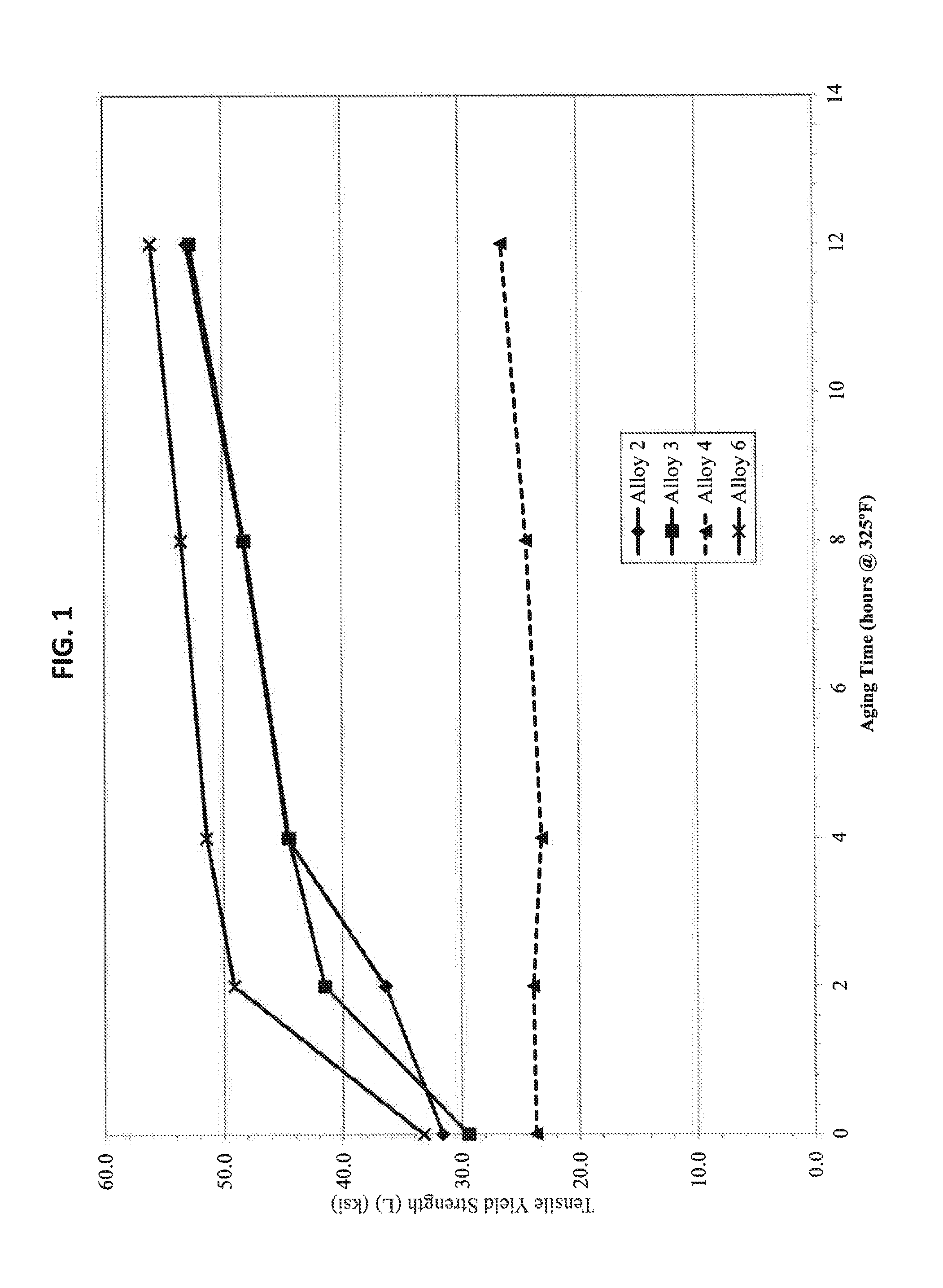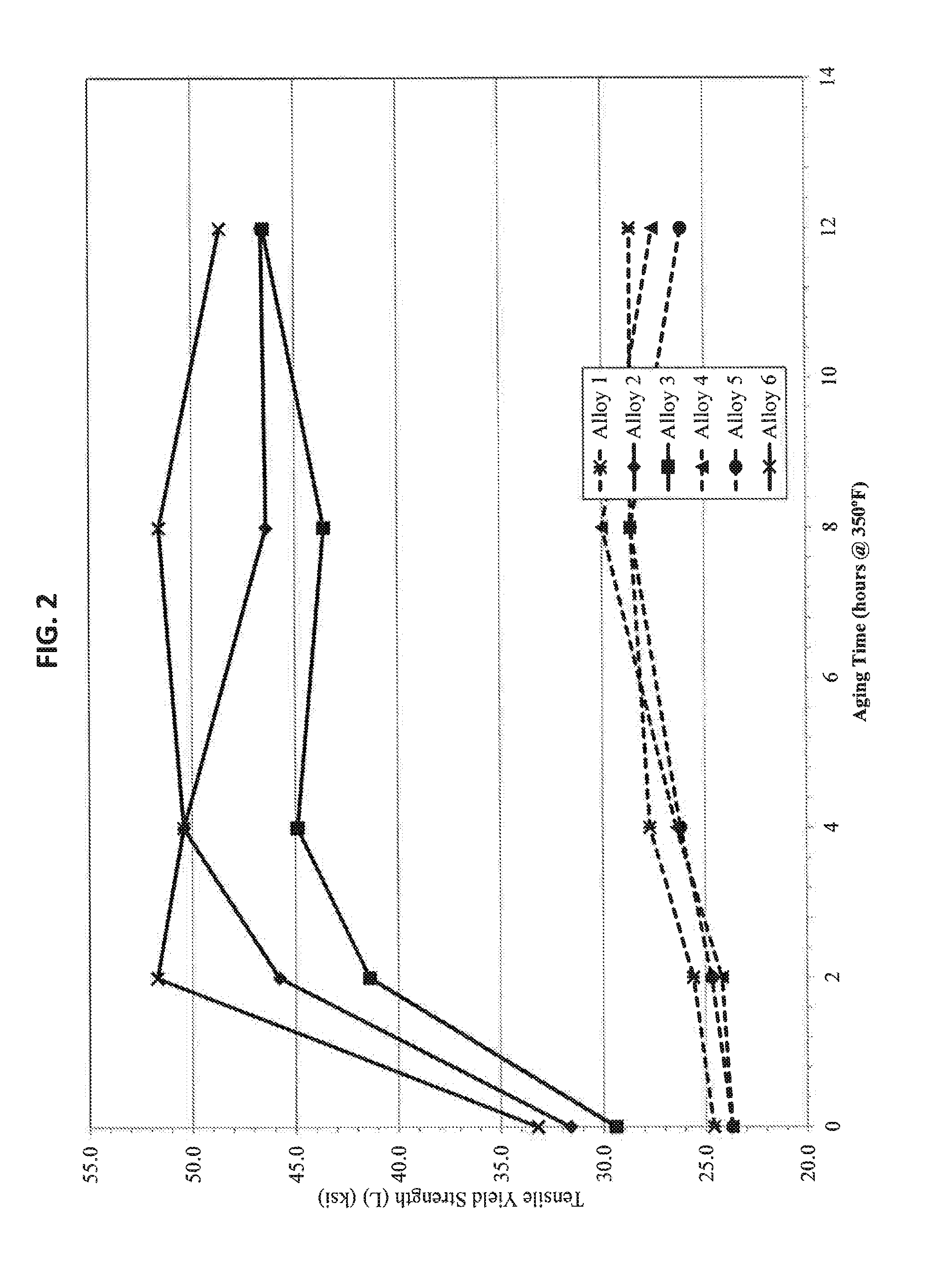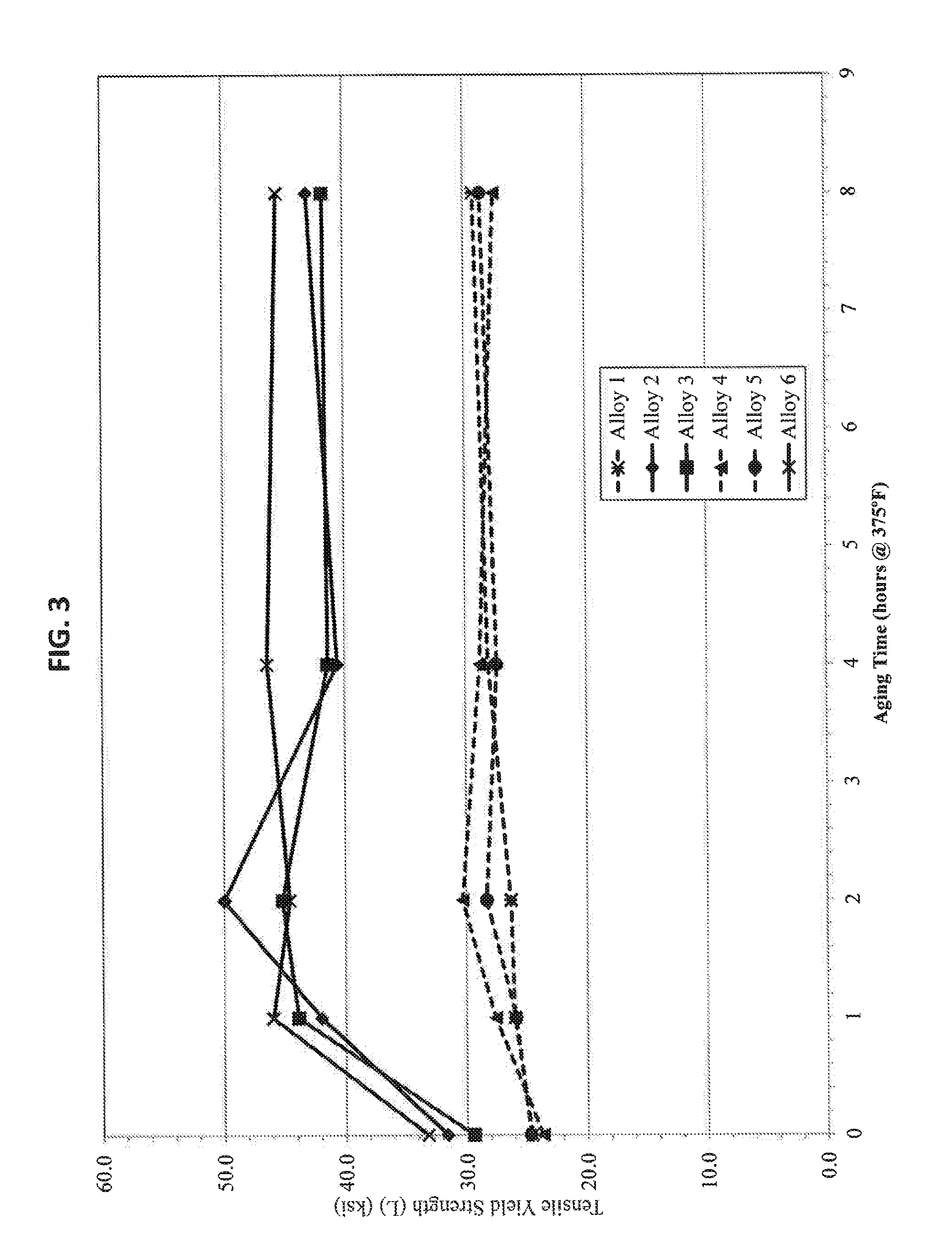Heat treatable aluminum alloys having magnesium and zinc and methods for producing the same
a technology of magnesium and zinc, which is applied in the field of heat treatable aluminum alloys having magnesium and zinc and methods for producing the same, can solve the problems of reducing the toughness of alloys, unable to improve one property of aluminum alloys without degrading another, etc., and achieves the effect of promoting hardening
- Summary
- Abstract
- Description
- Claims
- Application Information
AI Technical Summary
Benefits of technology
Problems solved by technology
Method used
Image
Examples
example 1
[0024]Six book mold ingots were cast (2.25″ (H)×3.75″ (W)×14″ (L)) having the compositions shown in Table 1, below.
TABLE 1Composition of Ex. 1 Alloys (in wt. %)AlloyMgZnMg / ZnCuMnNote13.882.131.820.480.31Non-invention23.313.21.030.480.32Invention34.343.251.3400.53Invention43.872.171.780.250.32Non-invention53.892.191.780.250.64Non-invention63.723.561.0400.32Invention
The alloys all contained not greater than about 0.12 wt. % Fe, not greater than about 0.11 wt. % Si, from about 0.01 to about 0.02 wt. % Ti, and from about 0.10 to 0.11 wt. % Zr. The remainder of the aluminum alloy was aluminum and other elements, where the aluminum alloy included not greater than 0.03 wt. % each of other elements, and with the total of these other elements not exceeding 0.10 wt. %.
[0025]The ingots were processed to a T6-style temper. Specifically, the ingots were homogenized, hot rolled to 0.5″ gauge, solution heat treated and cold water quenched, and then stretched about 1-2% for flatness. The products w...
example 2
[0028]Alloy 6 of Example 1 was also processed with high cold work after solution heat treatment. Specifically, Alloy 6 was hot rolled to an intermediate gauge of 1.0 inch, solution heat treated, cold water quenched, and then cold rolled 50% (i.e., reduced in thickness by 50%) to a final gauge of 0.5 inch, thereby inducing 50% cold work. Alloy 6 was then artificially aged at 350° F. for 0.5 hour and 2 hours. Before and after aging, mechanical properties were measured, the results of which are provided in Table 6, below. Strength and elongation properties were measured in accordance with ASTM E8 and B557.
TABLE 6Properties (L) of Ex. 2, Alloy 6 - Aged at 350° F.Aging TimeTYSUTSElong.(hours)(ksi)(ksi)(%)058.568.613.00.558.967.216.0256.064.716.0
[0029]As shown above, the 0.5 inch plate realizes high strength and with good elongation, achieving about a peak tensile yield strength of about 59 ksi, with an elongation of about 16% and with only 30 minutes of aging. By comparison, conventional...
PUM
| Property | Measurement | Unit |
|---|---|---|
| wt. % | aaaaa | aaaaa |
| wt. % | aaaaa | aaaaa |
| wt. % | aaaaa | aaaaa |
Abstract
Description
Claims
Application Information
 Login to View More
Login to View More - R&D
- Intellectual Property
- Life Sciences
- Materials
- Tech Scout
- Unparalleled Data Quality
- Higher Quality Content
- 60% Fewer Hallucinations
Browse by: Latest US Patents, China's latest patents, Technical Efficacy Thesaurus, Application Domain, Technology Topic, Popular Technical Reports.
© 2025 PatSnap. All rights reserved.Legal|Privacy policy|Modern Slavery Act Transparency Statement|Sitemap|About US| Contact US: help@patsnap.com



